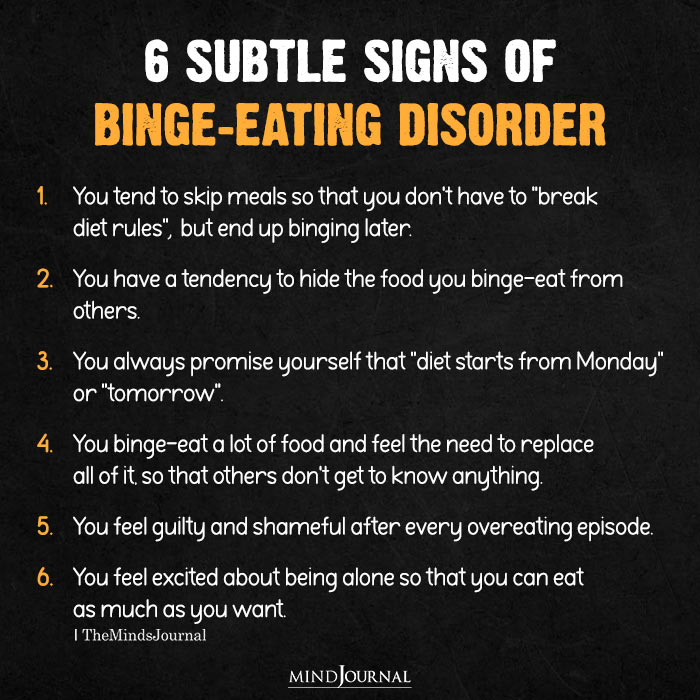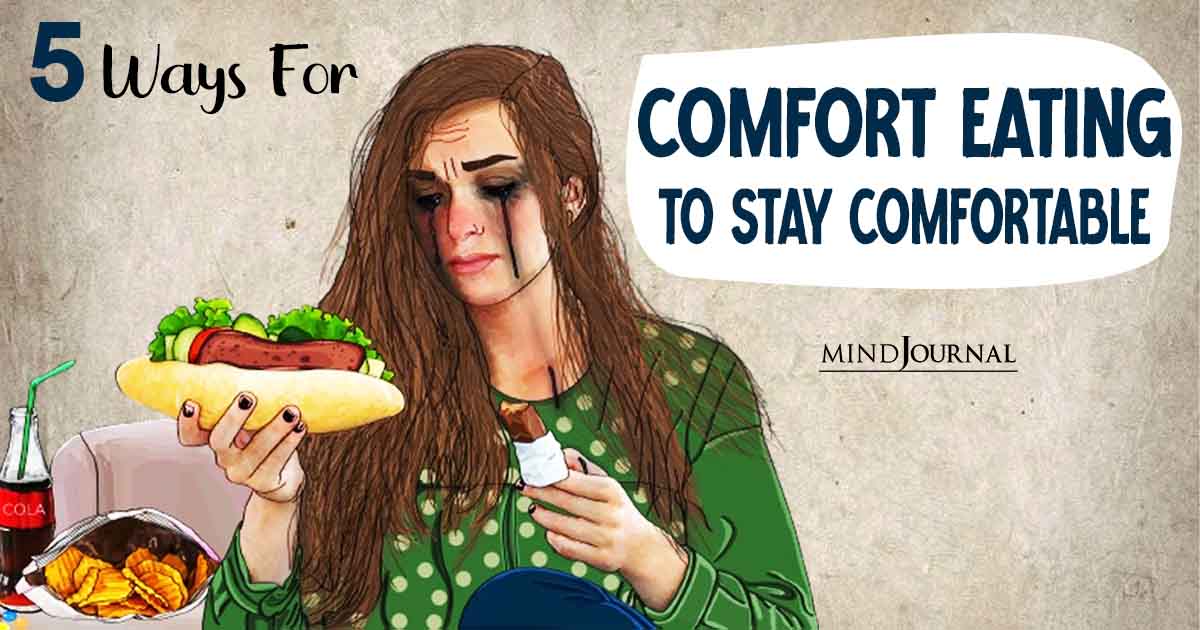Have you ever demolished an entire pint of ice cream after having a horrendously bad day? Was this binge eating or comfort eating? This article is going to discuss about both, talk about the differences between the two, and how you can stop yourself from binge eating often.
I have two distinct memories that involve eating. One horrified me, the other brought a sense of being understood.
Like most others living in a dorm, I had a small fridge in my little room in college. I was beginning to develop anorexia and was eating less and less, while receiving all kinds of accolades for becoming thin – which of course, egged on my disorder.
One afternoon, I ran back to my room because I was terribly hungry; I hadn’t quite reached the stage of anorexia where you mentally and emotionally detach from your body.
The first thing I did was open the fridge door, and reach for something— anything — that might fill me up. I stuffed it in my mouth, like a dog who hadn’t been fed for days. Then I sensed something. I looked up, and my boyfriend was sitting in a chair in the corner, watching and laughing.
Never mind that that was pretty boundary-less behavior on his part. I don’t think I swallowed. I was instantly full of shame — for being seen as so very out of control.
It only made me want to have more control.
Related: The 3 Main Causes Of Binge Eating and How You Can Stop
Forward twenty years later. My husband was walking down the hall of our home, and could see me sitting on the den couch. I’d learned I wasn’t pregnant, again, after three years of infertility treatment, and was handling those feelings by polishing off a big bag of Ruffles potato chips.
I was frantically reaching into the bottom of the bag as he reached the door, trying to get the crumbs stuck to my fingers so I could lick them off.
Dried tears were on my face. Some talk show blared on the TV.
All he kindly said, after looking at me and the empty bag in my hand, was, “Do you want another one?”
No shaming. No laughter. Just empathy.
I knew I’d married the right guy.
These two events, one couched in the development of an actual eating disorder, the other — the seeking of comfort through eating — have stuck in my mind for years.
What did eating mean at those times?

Do I have Binge Eating disorder or comfort eating?
It’s important to recognize the difference between an actual eating disorder such as binge eating and plain old comfort eating. The first is a mental illness that tends to begin in adolescence and young adulthood.
The two major characteristics of binge eating are eating in a fairly short period of time a much larger amount of food than what most people would eat and a lack of control over that eating. It doesn’t feel like a choice. It’s a compulsion.
But it can be triggered by emotions. Studies show that close to half of those who binge eat have a history of depression. There are also links to anxiety, impulsive behavior, and other mental health struggles.
My friend Dr. Amy Sheinberg, who specializes in eating disorders (and also has a sometimes poignant, sometimes hilarious Facebook page), tells us, “Each are generally associated with a trigger, but a binge suggests a compulsive need to eat large quantities of food (not necessarily comfort foods, but foods that are generally labeled “red light” foods) in a discrete period of time.
Soothing may be a sought-after effect of a binge, but bingeing can also be associated with other effects, including self-punishment. Comfort eating, while not a clinical term, is almost exclusively for self-soothing.
Foods chosen are generally associated with past memories that are recalled with fondness. There is no defined pace, and, in fact, the food consumed may be eaten in normal portions.”
So it sounds like “comfort eating,” if it happens once in a while, isn’t a problem. Having chocolate meringue pie for breakfast can seem like a great idea if you’re in a funk.
So how do you know the difference? Here are five criteria.
Binge Eating Or Comfort Eating?
1. Eating when you’re not hungry.
Ask yourself the question, “Am I really hungry? And if so, what am I hungry for?”
Research shows, for example, that often when we are feeling hungry we are actually thirsty, and not in need of food at all. Getting in tune with what you’re hungry for lends intentionality to eating.
“I’m hungry for something really fresh tasting,” can feel very different than, “I’m hungry for anything.” “Do I want one Hershey’s kiss or do I need 15 kisses?” Going to a nutritionist can help you figure out your relationship with different foods.
Related: 7 Ways To Stop Emotional Eating And Be Mindful Of Your Diet
2. Eating when you’re bored or and lonely.
Food can act as a friend — there when you need it.
But it’s not. Not really. The more we isolate and hover over iPads, the more food may be acting as our hangout buddy. Reach out to a real person instead, and it will be much more rewarding.
3. Eating to distract from or avoid painful emotions.
Grief, sadness, guilt, anger, disappointment, humiliation – none of these emotions are easy to feel. Yet the more you avoid them, the stronger they can become.
And literally stuffing emotions down can morph into a destructive cycle. You have to eat more to handle the growing feelings. You can choose to stop that cycle.
Journal. Go to therapy. Talk to a friend. Sit with the feelings. Cry. Vent. Chop wood. Scream. Do anything that will help that’s not self-destructive or hurts someone else.
4. Eating because you don’t know how to comfort yourself in other way.
Try other ways of comforting yourself.
Read. Walk. Watch an old movie. Talk. Stretch. Meditate. Laugh. Paint. Exercise. Write. Do something else that helps you feel better.
5. Eating because you’re ashamed of or even hate your body.
Self-acceptance is paramount to good mental health. It’s not resignation. It’s accepting yourself as you are, where you are, and how you got there.
Related: Childhood Trauma And Eating Disorders: Shocking Facts You Must Know
It’s practicing self-compassion; the best way you can grow and change is to acknowledge where you are. Shame and hatred will only serve as a hurdle rather than some kind of self-punitive motivation.
Check out Dr. Margaret’s Tedx Talk on YouTube, and also don’t forget to tune into her beloved podcast, The Self Work Podcast.
Written By Dr. Margaret Rutherford Originally Appeared On Dr. Margaret Rutherford










Leave a Reply